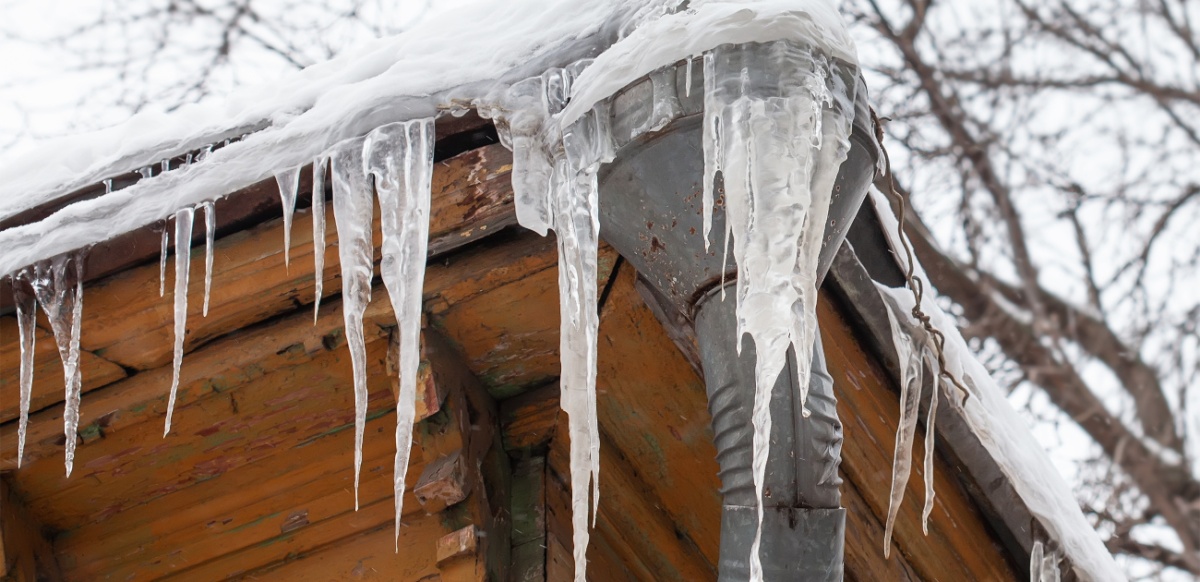Essential Tips to Avoid Frozen Pipes in Cold Weather: Expert Insights
Essential Tips to Avoid Frozen Pipes in Cold Weather: Expert Insights
Blog Article
Just how do you really feel on the subject of Winter Plumbing Precautions: Preventing Frozen Pipes?
:strip_icc()/snow-outdoor-faucet-pipes-4af65d1e5e904fb1aa7bf74071fe5d89.jpg)
Winter can ruin your plumbing, especially by freezing pipelines. Below's exactly how to stop it from happening and what to do if it does.
Introduction
As temperature levels decline, the threat of frozen pipes rises, potentially causing costly repair work and water damages. Recognizing how to avoid icy pipes is vital for homeowners in chilly environments.
Avoidance Tips
Protecting prone pipelines
Wrap pipes in insulation sleeves or make use of heat tape to shield them from freezing temperature levels. Focus on pipelines in unheated or external locations of the home.
Heating methods
Keep interior spaces effectively warmed, particularly areas with plumbing. Open up closet doors to enable cozy air to flow around pipelines under sinks.
Exactly how to identify icy pipes
Seek reduced water circulation from taps, uncommon smells or noises from pipelines, and visible frost on revealed pipes.
Long-Term Solutions
Architectural modifications
Take into consideration rerouting pipes far from outside walls or unheated areas. Include extra insulation to attic rooms, cellars, and crawl spaces.
Updating insulation
Invest in high-quality insulation for pipes, attics, and wall surfaces. Correct insulation helps maintain constant temperature levels and minimizes the threat of icy pipelines.
Protecting Outdoor Plumbing
Garden tubes and outside taps
Disconnect and drain yard tubes before winter season. Set up frost-proof spigots or cover exterior faucets with shielded caps.
Comprehending Icy Pipelines
What causes pipes to freeze?
Pipes ice up when revealed to temperatures below 32 ° F (0 ° C) for prolonged periods. As water inside the pipes ices up, it expands, taxing the pipe wall surfaces and possibly creating them to burst.
Threats and damages
Icy pipelines can result in supply of water disruptions, property damages, and expensive fixings. Burst pipes can flooding homes and create comprehensive architectural damage.
Indications of Frozen Piping
Identifying frozen pipes early can avoid them from breaking.
What to Do If Your Pipelines Freeze
Immediate activities to take
If you suspect frozen pipes, keep faucets available to eliminate stress as the ice thaws. Make use of a hairdryer or towels taken in warm water to thaw pipelines slowly.
Final thought
Protecting against icy pipelines needs positive steps and quick responses. By understanding the reasons, indicators, and preventive measures, property owners can safeguard their plumbing throughout winter.
Helpful Tips to Prevent Frozen Pipes this Winter
UNDERSTANDING THE BASICS: WHY PIPES FREEZE AND WHY IT’S A PROBLEM
Water freezing inside pipes is common during the winter months, but understanding why pipes freeze, and the potential problems it can cause is crucial in preventing such incidents. This section will delve into the basics of why pipes freeze and the associated problems that may arise.
THE SCIENCE BEHIND FROZEN PIPES
When water reaches freezing temperatures, it undergoes a physical transformation and solidifies into ice. This expansion of water as it freezes is the primary reason pipes can burst. As the water inside the pipe freezes, it expands, creating immense pressure on the walls. If the pressure becomes too great, the pipe can crack or rupture, leading to leaks and water damage.
FACTORS THAT CONTRIBUTE TO PIPE FREEZING
Low Temperatures: Extremely cold weather, especially below freezing, increases the risk of pipes freezing. Uninsulated or Poorly Insulated Pipes: Pipes located in unheated areas, such as basements, crawl spaces, or attics, are more prone to freezing. Insufficient insulation or lack of insulation altogether exacerbates the problem. Exterior Wall Exposure: Pipes running along exterior walls are susceptible to freezing as they encounter colder temperatures outside. Lack of Heating or Temperature Regulation: Inadequate heating or inconsistent temperature control in your home can contribute to frozen pipes. PROBLEMS CAUSED BY FROZEN PIPES
- Pipe Bursting: As mentioned earlier, the expansion of water as it freezes can cause pipes to burst, resulting in significant water damage.
- Water Damage: When pipes burst, it can lead to flooding and water damage to your property, including walls, ceilings, flooring, and personal belongings.
- Structural Damage: Prolonged exposure to water from burst pipes can compromise the structural integrity of your home, leading to costly repairs.
- Mold and Mildew Growth: Excess moisture from water damage can create a favorable environment for mold and mildew growth, posing health risks to occupants.
- Disrupted Water Supply: Frozen pipes can also result in a complete or partial loss of water supply until the issue is resolved.
WHY CERTAIN PIPES ARE MORE PRONE TO FREEZING
- Location: Pipes located in unheated or poorly insulated areas, such as basements, crawl spaces, attics, or exterior walls, are at higher risk of freezing.
- Exterior Pipes: Outdoor pipes, such as those used for irrigation or exposed plumbing, are particularly vulnerable to freezing as they are directly exposed to the elements.
- Supply Lines: Pipes that carry water from the main water supply into your home, including the main water line, are critical to protect as freezing in these lines can affect your entire plumbing system.
- Underground Pipes: Pipes buried underground, such as those connected to sprinkler systems or outdoor faucets, can be susceptible to freezing if not properly insulated.
https://busybusy.com/blog/helpful-tips-to-prevent-frozen-pipes-this-winter/

We hope you enjoyed our topic on Helpful Tips to Prevent Frozen Pipes this Winter. Thanks a ton for taking a few minutes to browse our short article. Those who enjoyed our blog entry please consider to pass it around. Many thanks for your time invested reading it.
Go Company Report this page